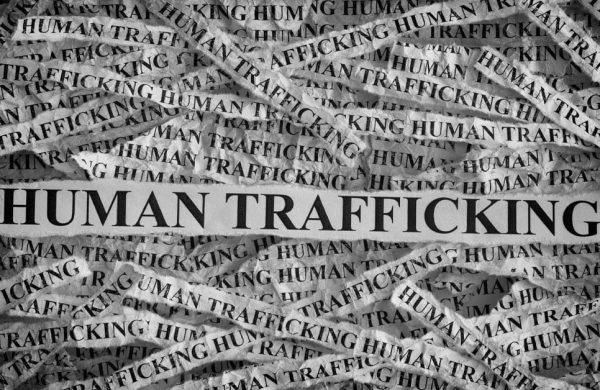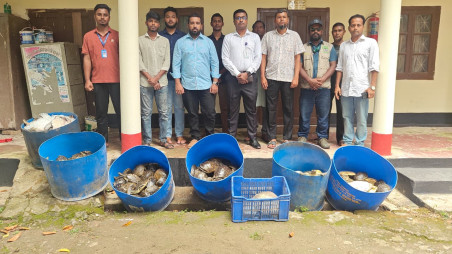Human trafficking goes on under guise of Malaysia visit visa
- Update Time : Sunday, July 27, 2025

TDS Desk:
Mozaffar Ahmad, a resident of Bamubil Chhari union in Cox’s Bazar’s Chakaria upazila, failed to secure a work visa for Malaysia. Desperate to seek employment abroad, he agreed to travel on a tourist visa with promises of later converting it into a work permit. Following a broker’s advice, he paid Tk4.8 lakh and left for Malaysia on 24 January this year. But instead of finding work, he was subjected to abuse and had to spend an additional Tk1.2 lakh before returning home on 10 May—empty-handed and traumatised.
Speaking to journalists, a weeping Mozaffar said, “A man from my area who had gone to Malaysia earlier lured me with big promises. He said I could go on a tourist visa, and they’d arrange a work permit later. We agreed on Tk4.8 lakh. Half would be paid upfront, the rest after I started working. But as soon as I reached the airport, they took the full amount from me.”
“Once in Malaysia, they didn’t give me any job. Instead, they started torturing me. They kept demanding more money from my family. That’s how they extorted another Tk1.2 lakh. Eventually, they handed me over to the police. I spent almost three months in jail before being deported. I’ve lost everything. Now I’m just trying to survive and repay my debts.”
Mozaffar is not alone. Thousands of Bangladeshi workers have been lured to Malaysia under similar pretences—victims of a growing human trafficking ring that operates under the guise of tourism. After spending lakhs of taka, many end up jobless, abused, and eventually deported, often with criminal records.
Malaysia’s labour market has been closed to Bangladeshi workers since 31 May last year, following widespread allegations of corruption and irregularities. More than a year has passed, yet the market remains shut, and efforts by the Bangladeshi government to reopen it have stalled. In the meantime, illegal syndicates are exploiting this vacuum to send workers through irregular channels using tourist visas.
Although there is no official data on the total number of victims, various immigration crackdowns and airport repatriation records indicate that over 400 Bangladeshi nationals attempted to enter Malaysia illegally on tourist visas in the past seven months. While some were turned back at the airport, others were arrested during raids and later deported after serving jail terms.
According to migration experts, the human trafficking crisis will persist unless the labour market is reopened through legal and transparent means. Officials at the Ministry of Expatriates’ Welfare and Overseas Employment acknowledge the challenge, saying Malaysia has imposed conditions requiring the use of a recruiting agency “syndicate” to resume labour imports—one of the main obstacles to reopening the market.
Dr Muhammad Yunus, chief adviser to the caretaker government, is scheduled to visit Malaysia on 11 August to discuss the labour market and other bilateral issues. Migration officials are hopeful the meeting may pave the way for reopening the job market.
Earlier efforts—including a visit to Malaysia by ministry adviser Dr Asif Nazrul in May and two working committee meetings held in Dhaka—have failed to resolve the deadlock, primarily due to Malaysia’s insistence on maintaining syndicate-based recruitment.
Dr Asif Nazrul said, “The previous government had agreed that Malaysia would submit a list of recruiting agencies and we would choose from them. This mutual agreement is what we now refer to as the ‘syndicate’. If we want to abandon the syndicate, we must renegotiate the agreement with the Malaysian government.”
He added, “If Malaysia doesn’t agree to change the deal, we are left with two options: either send workers through 25, 50 or even 100 designated agencies, or stop sending workers altogether.”
Migration expert and RMMRU founding chair Dr Tasneem Siddiqui noted, “These incidents are directly tied to the closure of the labour market. If the legal channel remains shut, illegal migration will continue. The government is trying hard, but two influential individuals have effectively closed the Malaysian market to us. We need political consensus across all parties to press for reopening the market, as it is crucial for our economy.”
OVER 400 BANGLADESHIS DEPORTED IN SEVEN MONTHS
Between January and July 2025, at least 426 Bangladeshis were deported from Malaysia after entering or attempting to enter the country using tourist visas. Of them, 356 were sent back directly from Kuala Lumpur airport, and 70 were jailed before deportation.
On 26 January, 12 Bangladeshis were detained at Kuala Lumpur International Airport for posing as trainees from the Malaysian Fisheries Academy using fake invitation letters. On 21 February, 45 more were detained under suspicious circumstances, as they were seen loitering around the airport instead of proceeding to immigration counters.
Again, on 14 July, 96 Bangladeshis were denied entry and repatriated after failing to meet immigration requirements. Malaysia’s border control agency cited suspicious accommodation bookings, insufficient funds, and unclear travel purposes as reasons.
The most recent crackdown came on 25 July, when 203 Bangladeshis were sent back from KLIA due to inadequate documentation, lack of funds, and vague travel motives.
70 BANGLADESHIS JAILED AND DEPORTED
In addition to those turned back at the airport, over 300 Bangladeshis were arrested by immigration police in Malaysia during various raids. Of them, 70 served different prison terms before being deported.
On 23 February, 28 Bangladeshis were returned after completing sentences for violating Malaysia’s immigration laws. Others followed in March and April. All have been blacklisted from re-entering Malaysia.


















